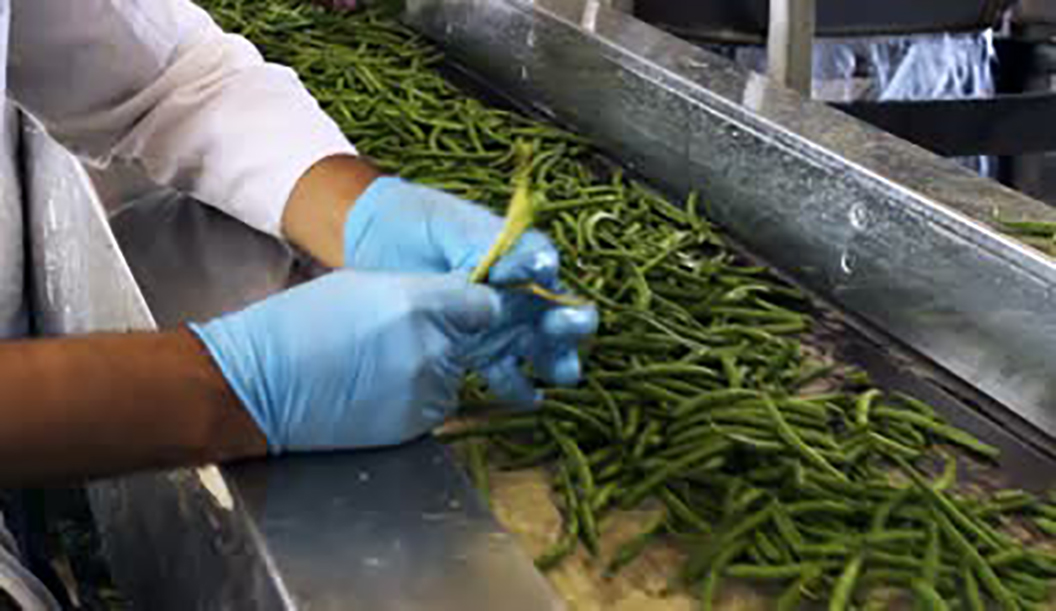

BULAWAYO — Zimbabwe’s exports of fresh leguminous vegetables (peas and beans) to the European Union (EU) increased by 269% over the past five years, an indication that the bloc is one of the country’s major export destinations, latest data has shown.
BY MTHANDAZO NYONI
In a monthly newsletter, ZimTrade said the exports of leguminous vegetables had risen to $20 million last year from $5,4 million in 2010.
ZimTrade said during the same period, EU global imports of fresh leguminous vegetables grew by 35% to $1 billion in 2014 from $780 million in 2010.
Zimbabwe’s major export destinations in the EU were the United Kingdom, France and Netherlands.
The EU market is the largest economy in the world with a GDP per capita of ₤25 000 for its 500 million consumers. It accounts for 16,4% of global imports and is also the biggest exporter, accounting for 15,4% of world exports.
ZimTrade said although Zimbabwe’s exports have been increasing, the country’s share was just 1,3% compared to other African suppliers such as Kenya (with 10% market share) and Egypt (4%).
“There is, therefore, huge scope to increase Zimbabwe’s market share in the EU market given the country’s good climatic conditions, which are conducive for the production of peas and beans,” ZimTrade said.
- Chamisa under fire over US$120K donation
- Mavhunga puts DeMbare into Chibuku quarterfinals
- Pension funds bet on Cabora Bassa oilfields
- Councils defy govt fire tender directive
Keep Reading
The country’s export promotion body said companies could also utilise the duty-free and quota-free access, applied to Zimbabwe’s exports to the EU market under the interim Economic Partnership Agreement. However, the most important requirement that an exporter should fulfil was complying with the EU food quality and safety standards, it said.
ZimTrade last month coordinated Zimbabwe’s participation in the Africa’s Big Seven (AB7) held at the Gallagher Convention Centre in Midrand, South Africa.
Zimbabwe had last participated in this annual specialised agro-food value chain (“farm-to-fork”) showcase in 2010. According to ZimTrade, the organisers were pleased with the country’s return to the show after a four-year absence.
Seven companies, drawn from the horticulture and processed foods sectors, took part in the event. The participants expressed optimism at prospects of making inroads into potential export markets.
Beitbridge Juicing Company business development manager Jerry Mundondo said they managed to establish serious contacts that they would be following through.
“We also gathered useful information that will be helpful in our endeavour to develop and grow our business beyond the Zimbabwe market,” he said.
Speciality Foods for Africa managing director Nyarai Kurebgaseka said the show was a great success as it provided them with the opportunity to interact with new contacts who have the potential to do business with them.
Arenel managing director Josh Lepar said they received good enquiries from South Africa, Mozambique and the Democratic Republic of Congo. He said they needed to come up with a pragmatic plan on the way forward.
Vegie Flora managing director Taurai Mangachena had this to say: “Through this show, we have managed to establish useful contacts which are key to penetrating the Asian market.”
Dinga Moyo, chairman at the Food Processing Technology Department of the Harare Institute of Technology, said they learnt a lot from other countries especially on the aspect of packaging and to be competitive, they need to invest in aseptic packaging.










